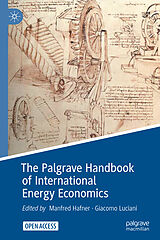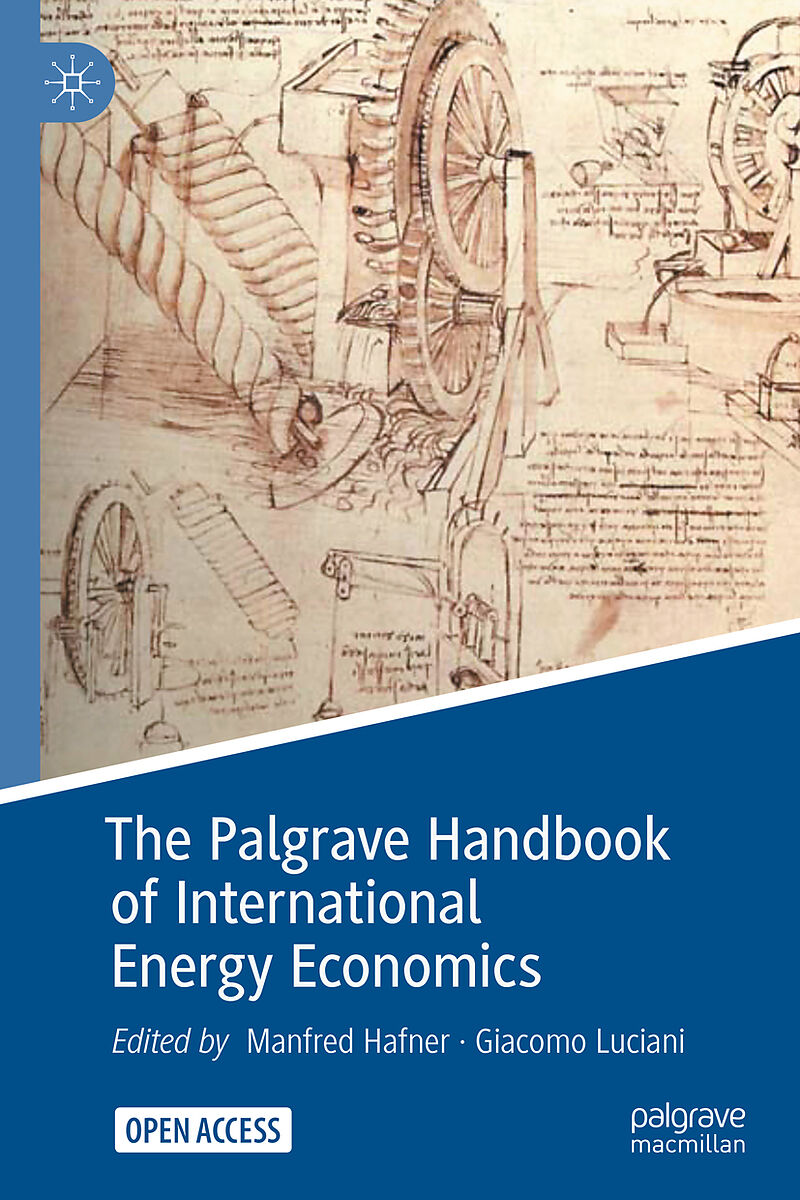The Palgrave Handbook of International Energy Economics
Einband:
Fester Einband
EAN:
9783030868833
Untertitel:
Englisch
Herausgeber:
Springer International Publishing
Auflage:
1st edition 2022
Anzahl Seiten:
836
Erscheinungsdatum:
28.05.2022
ISBN:
3030868834
This open access handbook is distinguished by its emphasis on international energy, rather than domestic energy policies or international geopolitic aspects. Addressing key topics such as energy production and distribution, renewables and corporate energy structures, alongside global energy trends, regional case studies and emerging areas such as the digitalization of energy and energy transition, this handbook provides a major new contribution to the field of international energy economics.
Written by academics, practitioners and policy-makers, this handbook is a valuable and timely addition to the literature on international energy economics. This book was published open access with the support of Eni.
Assesses the evolution and current state of international energy economics This book is open access, which means that you have free and unlimited access Presents multidisciplinary perspectives from Economics, Politics, and Energy Studies Uses theoretical and policy approaches to international energy economics
Autorentext
Professor Manfred Hafner teaches economics and (geo)-politics of international energy at the SciencesPo Paris School of International Affairs (PSIA) and at The Johns Hopkins University School of Advanced International Studies (SAIS-Europe). Until recently he directed the "Geopolitics and Energy Transition" research program at the Fondazione Eni Enrico Mattei (FEEM). He also runs his own energy strategy consultancy with which he has over the last decades extensively advised governments, international organizations and the energy industry. Professor Giacomo Luciani leads the Master in International Energy at the Paris School of International Affairs, Sciences Po, which he established in 2011. He is also adjunct professor of interdisciplinary studies at the Graduate Institute of International and Development Studies in Geneva; and Visiting Professor in the Master in Commodity Trading of the Graduate School of Economics and Management of the University of Geneva.
Inhalt
Introduction.- 1. Part 1: Economics of energy production and distribution.- 1.1. Economics of oil and gas production - Nadine Bret-Rouzeaut (SciencesPo, France).- 1.2. Economics of oil tanker transportation.- 1.3. Economics of gas transportation by pipeline or LNG - Manfred Hafner (IFP School, Switzerland).- 1.4. Economics of oil refining - Jean-Pierre Favennec (IFP School, Switzerland).- 1.5. Economics of biofuels - Adam Brown, International Energy Agency.- 1.6. Economics of power generation - Arash Farnoush (IFP School, Switzerland) or Martin Everts (Head of Energy Economics at AxPo Holding AG, Switzerland) and/or Eicke Bluhme-Werri (AxPo Holding AG, Switzerland).- 1.6.1. Coal and oil-based generation.- 1.6.2. Gas-based generation (OCGT/CCGT).- 1.6.3. Nuclear generation (including SMRs).- 1.6.4. Hydropower (different forms).- 1.6.5. Solar energy.- 1.6.6. Wind energy.- 1.6.7. Other renewables.- 1.7. Economics of energy networks - Andrea Bonzanni (SciencesPo, France).- 1.8. Economics of energy storage.- 1.9. Financing of energy investment.- 2. Part 2: Economics of energy trading and price discovery.- 2.1. International trade in energy in the context of globalization - Giacomo Luciani, (SciencesPo, France).- 2.2. The trading and price discovery for crude oils - Giacomo Luciani or Bassam Fattouh (Oxford Institute for Energy Studies, UK) or Liz Bossley (CEO, Consilience Energy Advisory Group Ltd, UK).- 2.3. The trading and price discovery for oil products - Liz Bossley (CEO, Consilience Energy Advisory Group Ltd, UK).- 2.4. The trading and price discovery for natural gas - Manfred Hafner (IFP School, Switzerland).- 2.5. The trading and price discovery for coal - Sylvie Cornot-Gandolphe (Oxofrd Institute for Energy Studies) or Jan Beckaert.- 2.6. The trading and price discovery for biofuels.- 2.7. The trading of electricity - Eleanor Morrison (London Financial Studies) and/or Philippe Vassilopoulos (Cambridge University).- 2.8. The trading of carbon - Alfred Evans (Climate Change Capital Ltd) or Eleanor Morrison (London Financial Studies).- 3. Part 3: Corporate energy structures.- 3.1. Determinants of vertical integration in energy.- 3.2. Unbundling, markets and regulation - Eleanor Morrison (London Financial Studies).- 3.3. Energy companies: sensible conglomerates?.- 3.4. Energy (power) decentralization and the future of networks.- 3.5. Energy corporate governance - John Gault (former Chief Economist of the International Energy Development Corporation, US).- 3.6. The impact of digitalization.- 4. Part 4: Global energy trends.- 4.1. Energy scenarios: comparative analysis of black boxes - Manfred Hafner (IFP School, Switzerland).- 4.2. Disruptive technologies - Fabio Genoese (Centre for European Policy Studies, Belgium).- 4.3. Drivers of energy demand.- 4.3.1. Energy demand for buildings.- 4.3.2. Energy demand for industry.- 4.3.3. Energy demand for transportation.- 5. Part 5: The trilemma and economics of tradeoffs.- 5.1. Internalizing externalities: market vs. regulatory approaches to decarbonisation.- 5.2. Market solutions to security of supply - Giacomo Luciani (SciencesPo, France).- 5.3. Energy subsidies.- 5.4. Economics of access to energy.- 6. Part 6: Energy and the economy.- 6.1. Energy and the economy in China.- 6.2. Energy and the economy in India - Dagmar Graczyk (International Energy Agency).- 6.3. Energy and the economy in Sub Saharan Africa Philippe Copinschi (SciencesPo).- 6.4. Energy and the economy in Latin America.- 6.5. Energy and the economy in the Middle East and North Africa.- 6.6. Energy and the economy in Russia - Tatiana Mitrova (Russian Academy of Sciences).- 6.7. Energy and the economy in North America.- 6.8. Energy and the economy in Europe.

Leider konnten wir für diesen Artikel keine Preise ermitteln ...
billigbuch.ch sucht jetzt für Sie die besten Angebote ...
Die aktuellen Verkaufspreise von 6 Onlineshops werden in Realtime abgefragt.
Sie können das gewünschte Produkt anschliessend direkt beim Anbieter Ihrer Wahl bestellen.
Loading...
Die aktuellen Verkaufspreise von 6 Onlineshops werden in Realtime abgefragt.
Sie können das gewünschte Produkt anschliessend direkt beim Anbieter Ihrer Wahl bestellen.
| # | Onlineshop | Preis CHF | Versand CHF | Total CHF | ||
|---|---|---|---|---|---|---|
| 1 | Seller | 0.00 | 0.00 | 0.00 |
